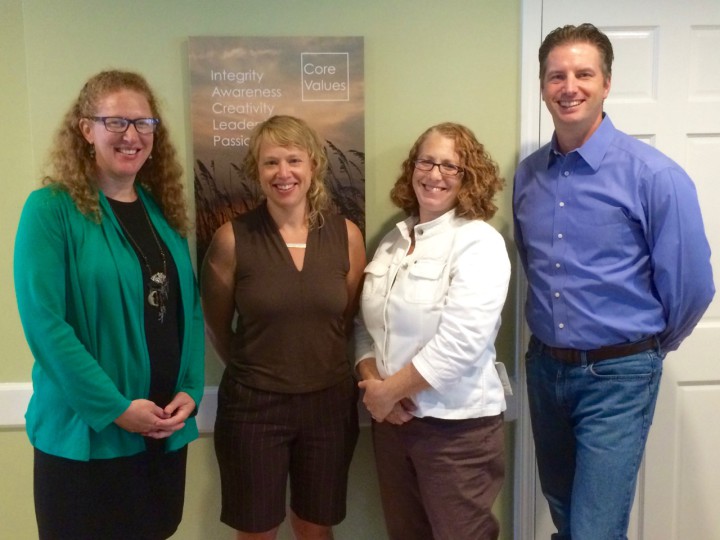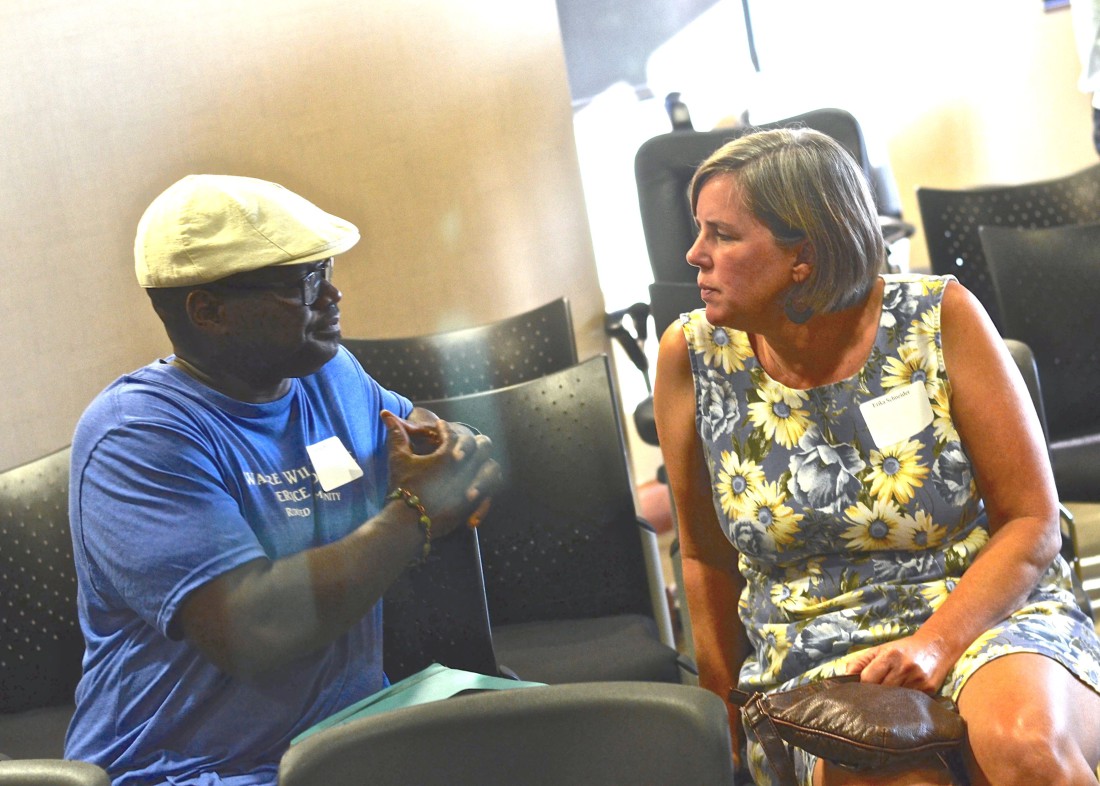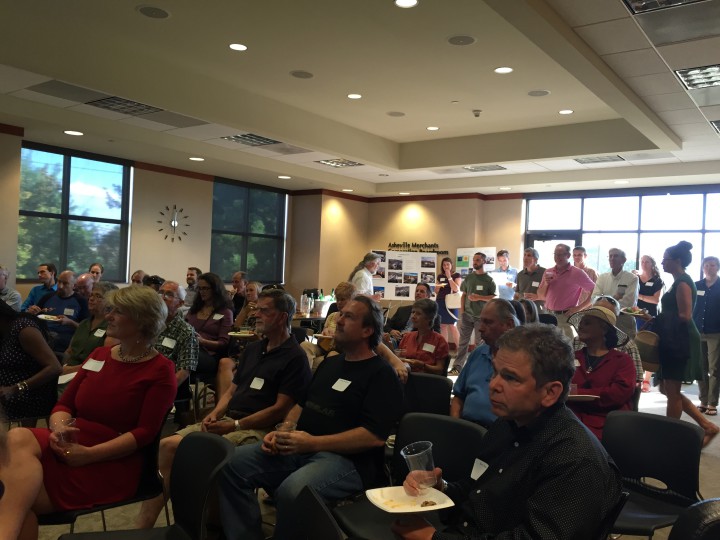Now that the cost of ‘going solar’ on a home is equivalent to buying a new car, the challenge is no longer technical but affordable financing. America’s ubiquitous automobiles would not be us without financing. So why not finance solar in the same fashion? This question and others regarding investing in clean energy, from residential to commercial, was the focus of the Celebration Solar Soiree, held Aug. 25 by the Self-Help Credit Union in Asheville.
“Access to affordable credit is vital for making the switch to a solar economy,” Peter Krull told the 70 or so people in attendance. Krull, president & founder of Krull & Company, noted that, “Even though the cost of a system has come down considerably, it still is expensive. But [it’s] a good long-term investment. And, continuing to offer some of the best tax incentives in the country will only benefit North Carolina, as we see companies like Apple, Google and Facebook make considerable investments here based on those incentives — those investments bring jobs and economic growth.”
The Soiree celebrated investments already made in Western North Carolina with the help of innovative financing from Self-Help Credit Union. Representatives from FLS Energy, Clean Energy for WNC, NC Interfaith Power & Light and RiverLink gave first-hand testimony regarding the positive results of creative and sound financing for solar, from the small scale to the utility scale.
Melissa Malkin-Weber, sustainability director at Self-Help Credit Union opened the Soiree, saying, “At Self-Help, we are proud of our ongoing work across our lines of business, having invested $242 million into sustainable businesses and projects. In 2013, Self-Help made our very first utility-scale solar loan to enable FLS Energy to build solar arrays in seven locations across the state. Since then, have invested over $76 million and counting, including loans to additional FLS solar farms. We get a little emotional about being part of a movement that has brought $2.6 billion of renewable energy investments to North Carolina, three-quarters of it in rural counties. Our investments have fueled 2,250 good construction jobs in an industry that now directly employs 23,000 people in North Carolina.” Those arrays are now producing enough solar to power about 14,000 NC homes – 147 megawatts in total, Malkin-Weber said.
Frank Marshall, director of policy and public affairs with FLS Energy, confirmed Self-Help’s role. “Without Self-Help Credit Union, FLS Energy would not be where we are today,” Marshall said. “It was impossible to get big banks to finance our business model. Then we talked to Self-Help Credit, and they worked with us on creative financing.”

“There’s as much solar being built in [the state] as anywhere in the country outside of California, with hundreds of megawatts being built right now,” said Brownie Newman, vice president and project finance director at FLS. He added, “Self-Help has been incredibly important to the viability and success of so many of our projects, especially the first projects, when other financial institutions thought solar was too risky or unproven. Self-Help stepped in to provide financing that was incredibly innovative, and many others are now following their lead. The cost of solar has come way down as the industry has scaled up, but now a lot of the innovations are around financing.”
Katie Bray with Clean Energy for US explained, “Self-Help has helped Clean Energy for Us by providing education on financing to our participants and at our events, creating a local loan product for our participants to consider and helping us get the word out about our program to their members. Jane Hatley came and presented at one of our free Solar 101 events on the financing options available to homeowners for solar or energy efficiency upgrades. Melissa Melkin-Weber presented a webinar that we hosted with the Chamber of Commerce which was geared towards commercial investments in solar and energy efficiency, covering financing for small businesses.”





Before you comment
The comments section is here to provide a platform for civil dialogue on the issues we face together as a local community. Xpress is committed to offering this platform for all voices, but when the tone of the discussion gets nasty or strays off topic, we believe many people choose not to participate. Xpress editors are determined to moderate comments to ensure a constructive interchange is maintained. All comments judged not to be in keeping with the spirit of civil discourse will be removed and repeat violators will be banned. See here for our terms of service. Thank you for being part of this effort to promote respectful discussion.